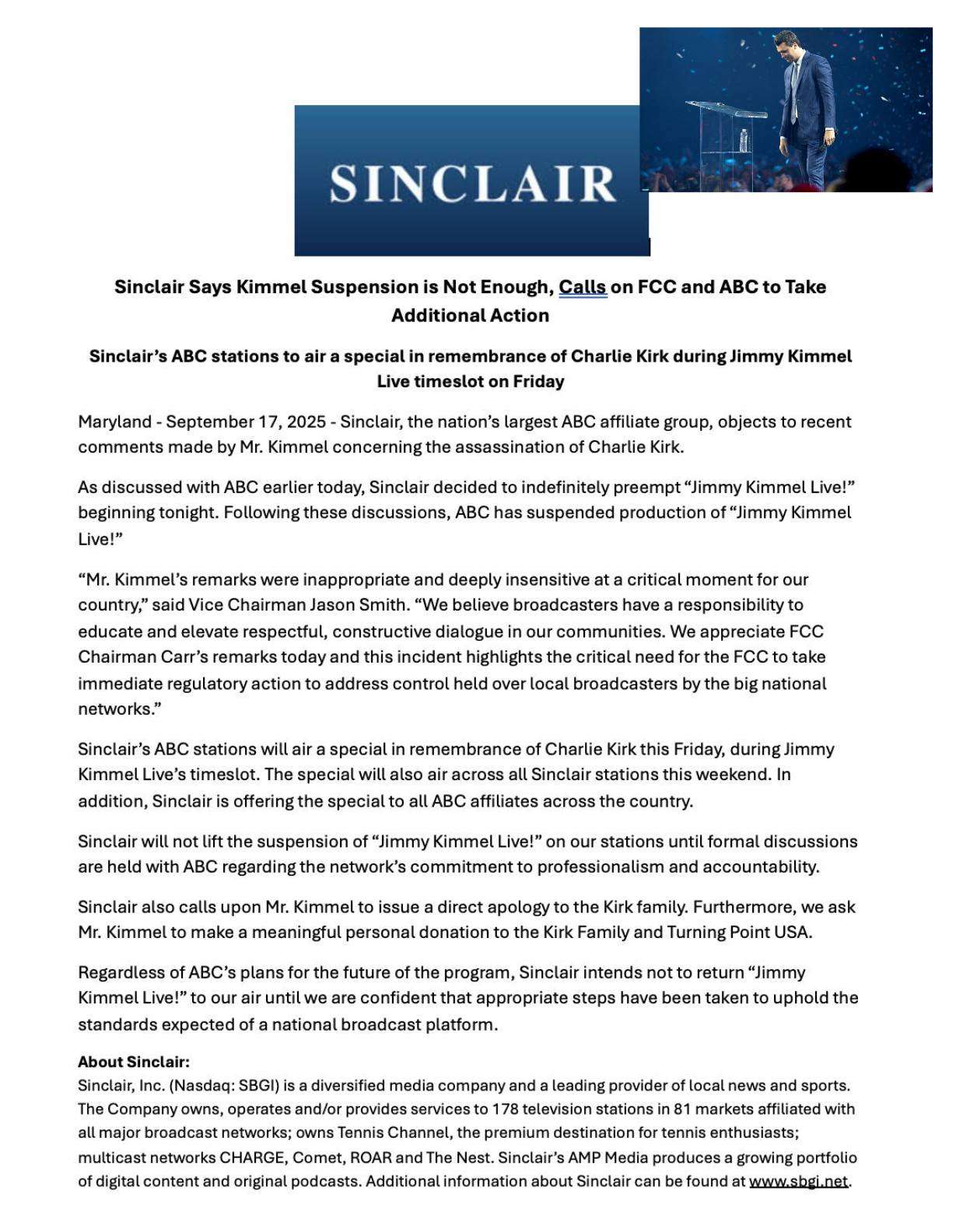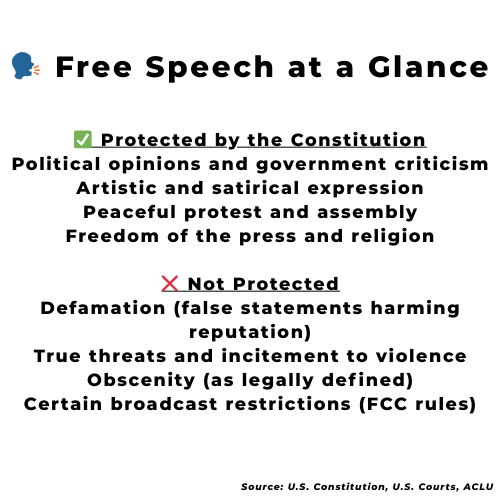ABC affiliates owned by Sinclair suspend the late-night show indefinitely, joining other networks amid public backlash.
HUNT VALLEY, MD — Sinclair Broadcast Group has announced it will suspend Jimmy Kimmel Live! on its ABC affiliates indefinitely following controversial comments made by the late-night host about Charlie Kirk. The remarks, delivered during Kimmel’s monologue on September 15, 2025, criticized those responding to Kirk’s death, drawing swift condemnation from affiliates and political figures.
During the monologue, Kimmel said that “the MAGA gang” was trying to portray the person who murdered Kirk “as anything other than one of them … doing everything they can to score political points.” He characterized the response from some conservative circles as an attempt to politicize a tragedy, remarks that many deemed insensitive given the nature of the crime and the family’s grief.
“Mr. Kimmel’s remarks were inappropriate and deeply insensitive at a critical moment for our country,” Sinclair stated in a press release. The broadcast group emphasized that it “will not lift the suspension of Jimmy Kimmel Live! on our stations until formal discussions are held with ABC regarding the network’s commitment to professionalism and accountability.”

Sinclair also called for Kimmel to issue a direct apology to Kirk’s family and make a “meaningful personal donation” to the family and to Turning Point USA. The network group plans to air a special in remembrance of Kirk during the show’s usual timeslot and is offering it to other ABC affiliates nationwide.
ABC, which produces Jimmy Kimmel Live!, also announced the show will be pre-empted indefinitely, with many affiliates filling the slot with reruns of Celebrity Family Feud while the network evaluates next steps.
The controversy has sparked a national conversation about the responsibilities of late-night hosts and networks. FCC Chairman Brendan Carr weighed in, emphasizing that broadcasters have a duty to maintain respectful and constructive dialogue on-air. Nexstar Media Group, another large ABC affiliate owner, joined Sinclair in suspending the show, citing the remarks as “offensive and insensitive.”
The incident highlights the growing influence of local affiliates over national programming, as well as the pressures faced by networks in a highly polarized media environment. Critics argue that hosts like Kimmel use late-night comedy to push political commentary, while supporters insist free speech must be protected even in controversial circumstances.
While ABC and Disney have not released a detailed internal memo explaining the suspension, the move represents one of the more visible instances of affiliate networks asserting control over content following public and political backlash.
Observers note that this situation could set a precedent for how broadcasters handle politically charged content in the future, raising questions about censorship, accountability, and the role of entertainment platforms in shaping public discourse.
Free Speech and It's Limits
The controversy surrounding Kimmel’s remarks also reignites a longstanding debate over the boundaries of the First Amendment. While the Constitution protects freedom of speech from government censorship, it does not shield individuals from all consequences.

Statements made on television are subject to both public scrutiny and legal standards. Defamation, for example — false statements of fact that harm another person’s reputation — is not protected speech. Broadcasters also face oversight from the Federal Communications Commission (FCC), which requires that licensed stations operate in the “public interest.” Affiliates can decide to pull programming they deem inappropriate or harmful without violating constitutional protections.
In short, Kimmel’s right to speak his mind does not guarantee his show a platform on every network. ABC and its affiliates, as private entities, retain the authority to suspend or replace programming in response to public pressure, legal concerns, or business considerations. The case underscores the delicate balance between protecting open dialogue and ensuring accountability when speech crosses ethical or legal lines.




